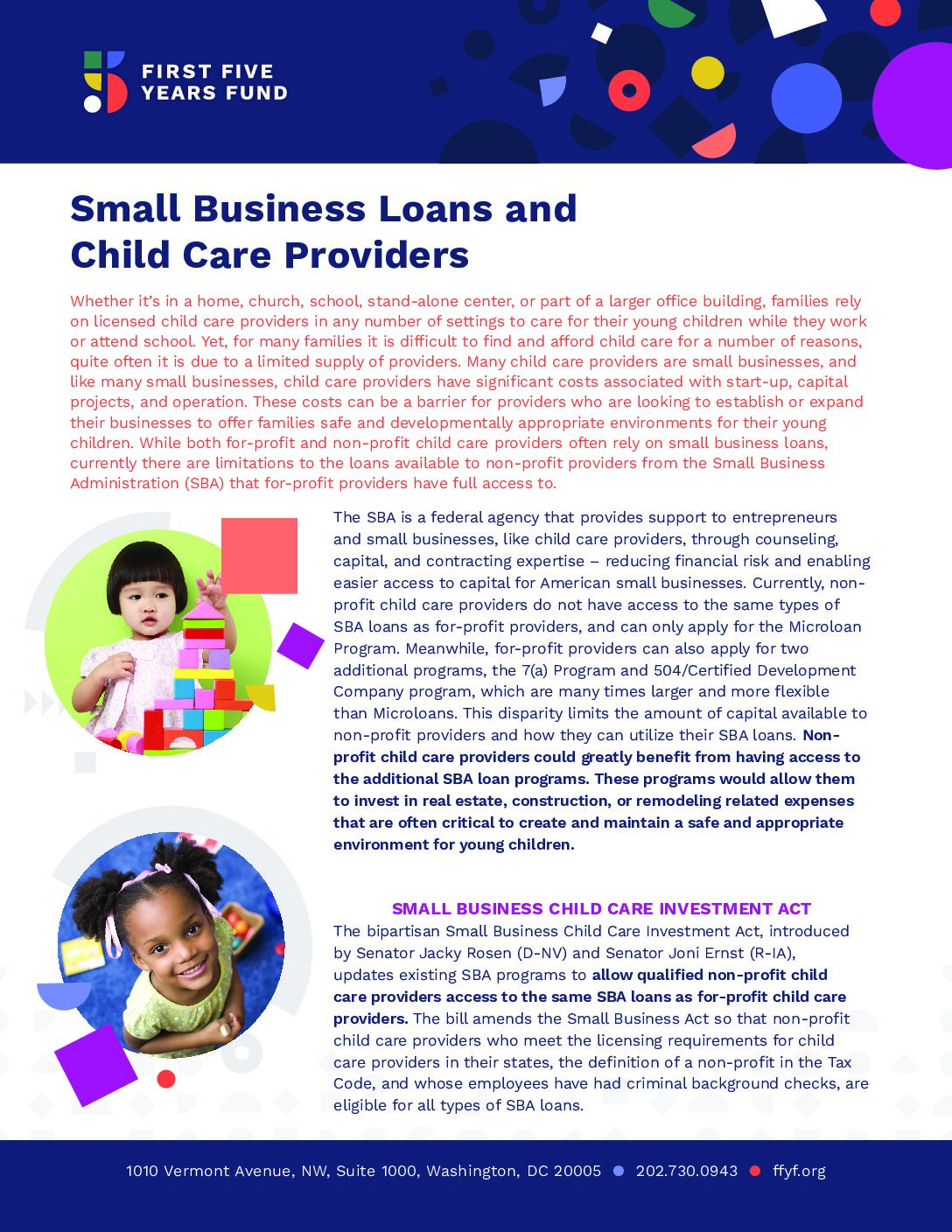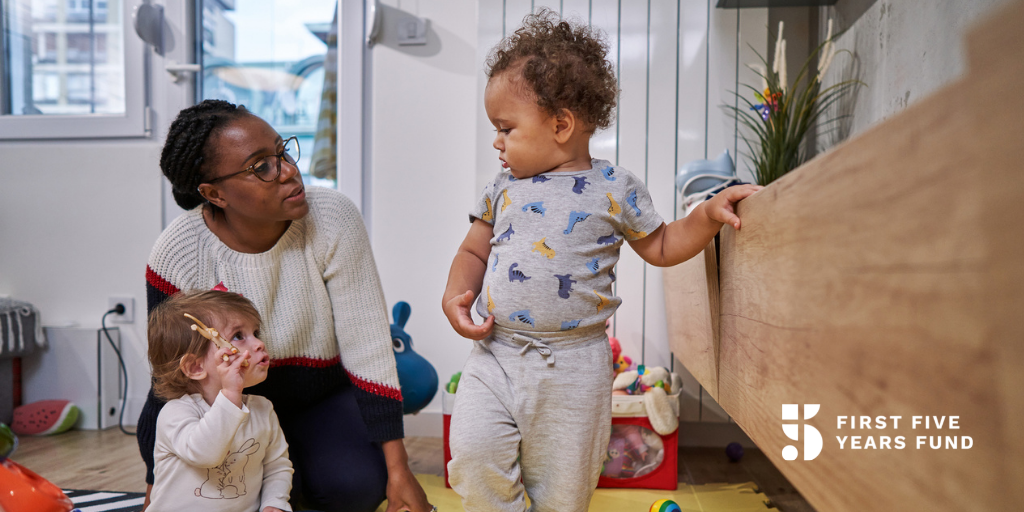Small Business Loans and Child Care Providers

Many child care providers are small businesses, and like many small businesses, child care providers have significant costs associated with start-up, capital projects, and operation. These costs can be a barrier for providers who are looking to establish or expand their businesses to offer families safe and developmentally appropriate environments for their young children. While both for-profit and non-profit child care providers often rely on small business loans, currently there are limitations to the loans available to non-profit providers from the Small Business Administration (SBA) that for-profit providers have full access to.

The SBA is a federal agency that provides support to entrepreneurs and small businesses, like child care providers, through counseling, capital, and contracting expertise — reducing financial risk and enabling easier access to capital for American small businesses. Currently, non-profit child care providers do not have access to the same types of SBA loans as for-profit providers, and can only apply for the Microloan Program. Meanwhile, for-profit providers can also apply for two additional programs, the 7(a) Program and 504/Certified Development Company program, which are many times larger and more flexible than Microloans. This disparity limits the amount of capital available to non-profit providers and how they can utilize their SBA loans. Non-profit child care providers could greatly benefit from having access to the additional SBA loan programs. These programs would allow them to invest in real estate, construction, or remodeling related expenses that are often critical to create and maintain a safe and appropriate environment for young children.
Small Business Child Care Investment Act
The bipartisan Small Business Child Care Investment Act, introduced by Senator Jacky Rosen (D-NV) and Senator Joni Ernst (R-IA), updates existing SBA programs to allow qualified non-profit child care providers access to the same SBA loans as for-profit child care providers. The bill amends the Small Business Act so that non-profit child care providers who meet the licensing requirements for child care providers in their states, the definition of a non-profit in the Tax Code, and whose employees have had criminal background checks, are eligible for all types of SBA loans.
Background on Current SBA Programs for Child Care Providers
Microloan Program
- Available to both non-profit and for-profit child care providers.
- Offers loans of up to $50,000 to small businesses and certain non-profit child care centers for start up and expansion. The average microloan is $13,000.
- Loans can only be used for certain business expenses, including:
- Working capital
- Inventory or supplies
- Furniture or fixtures
- Machinery or equipment
- Can not be used to purchase real estate or for existing debts (access to real estate that meets the needs of young children, such as adequate space for play, is a barrier for many child care providers.)
7(a) Program and 504/Certified Development Company Program
- Both programs are available only to for-profit child care providers.
- Loan amount can be larger than Microloans, ranging from $500 to $5.5 million.
- Providers can use the loans for additional purposes including:
- Purchasing fixed assets such as furniture, real estate, machinery, equipment, construction, and remodeling
- Providing working capital such as seasonal financing, export loans, revolving credit, and refinancing business debt
Subscribe to FFYF First Look
Every morning, FFYF reports on the latest child care & early learning news from across the country. Subscribe and take 5 minutes to know what's happening in early childhood education.




